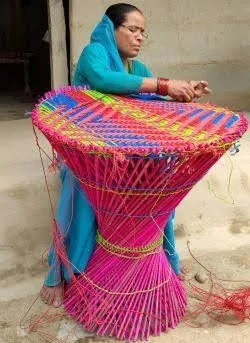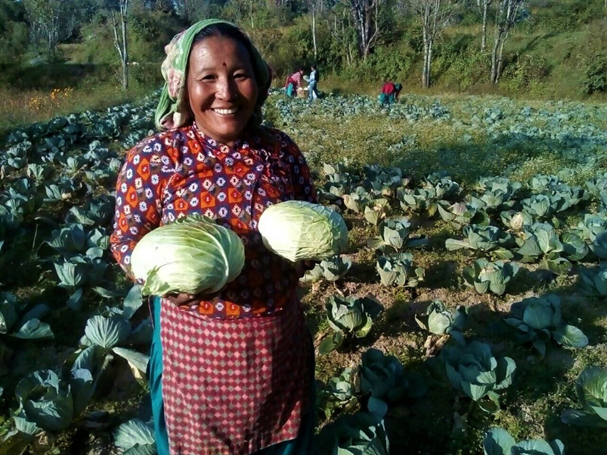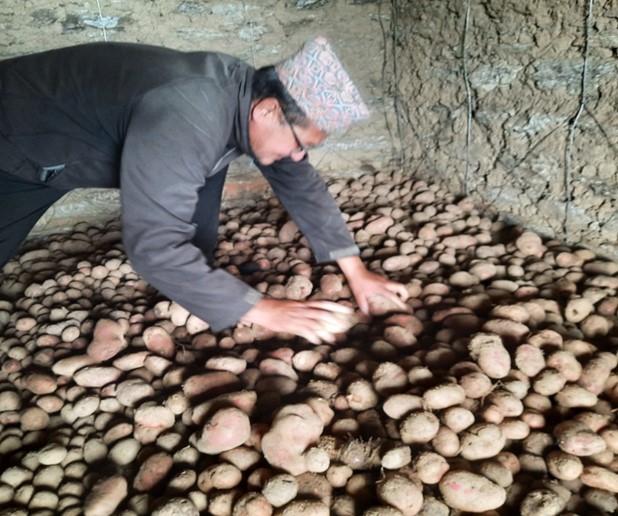
Surunga Municipality, located in Saptari District, is home to 9,680 households, with the majority belonging to Tharu and Dalit communities. Under the Freedom from Forced Labour and Modern Slavery Project implemented by Rural Reconstruction Nepal (RRN), 10 Community-Based Organizations (CBOs) have been formed, comprising 248 marginalized communities. The project aims to provide skill-based training and raise awareness about rights, entitlements, local government work, and social security.
Sundaria Chaudhary, a farmer from Birnagar and a mother of three, faced difficulties managing food security due to limited resources. After learning about the CBOs formed by RRN and their focus on public awareness and skill-based training, she became a member of the Birdhana Collective. Sundaria actively participated in the monthly meetings conducted by RRN and discovered a 15-day bamboo stool-making training supported by Surunga Municipality, which she decided to attend.
Sundaria’s hard work and dedication during the training led to her exceptional performance, earning her the first prize during the monitoring conducted by the Department of Cottage and Small Industries. She successfully crafted four bamboo stools per day, showcasing her acquired skills and sincerity. As a result, Sundaria received a call from the Department of Cottage and Small Industries, offering her a trainer position at Rs 1,500 per day. She worked as a trainer for 20 days, earning a total of Rs 30,000.
Sundaria now operates her own business from home, making and selling bamboo stools. Priced at Rs 300 per piece, her products find a market within the community. Sundaria expresses her gratitude to RRN for providing her with the opportunity to become financially independent and emphasizes the value of hard work in achieving success.
Sundaria Chaudhary’s journey exemplifies the transformative power of skill-based training and community support in empowering marginalized individuals. Through the initiatives of RRN and Surunga Municipality, she acquired valuable skills, gained recognition, and established a successful entrepreneurial venture. Sundaria’s story serves as a testament to the importance of providing opportunities and resources for marginalized communities to overcome socio economic challenges and achieve self-sufficiency.




